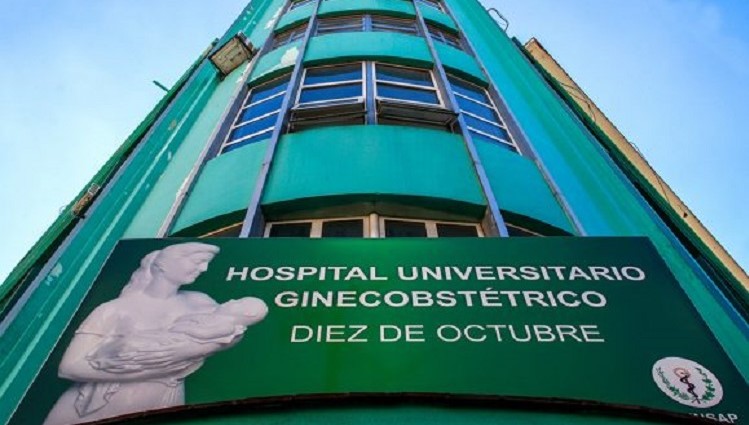MADRID, Spain.- After the death of eight newborns, in just a few days, at the Diez de Octubre Gynecology and Obstetric Hospital, in Havana, cubadebate published an extensive article on statements by Dr. Yaima Rodríguez Espinosa, a first-degree specialist in pediatrics and head of the maternal-infantile section of Havana.
According to the specialist, from the second half of December 2022 there was an increase in neonatal morbidity in the hospital, especially in CIUR preterm newborns (retarded intrauterine growth or low weight).
“Since January 11, given the clinical suspicion, deterioration and subsequent death of a baby with presumptive signs of sepsis, associated with risk factors, and which made these children more vulnerable, measures began to be taken that allowed us to identify other cases in the service,” he said.
Of the eight babies, four died of sepsis, the causes of which, the doctor adds, are still being investigated. It is worth noting that Cubans constantly denounce the unsanitary conditions that hospitals present on the Island.
“When the patient requires more intensive care, there is more risk. If you’re ventilated seven days, 10 days, you’re running the risk of ventilator-associated pneumonia and that’s a healthcare-associated infection. Because intrahospital germs exist, so we try to shorten the time with intensive care and have favorable results”.
The specialist indicates that the lack of drugs and resources such as expendable material is a reality that has a negative impact on the health system, but indicates that both authorities of the sector in the province and the hospital affirmed that from the outset the medical and non-medical insurance for the neonatology service it was guaranteed.
Four other children not associated with sepsis died due to extreme prematurity and CIUR.
The doctor insists that the complications of premature birth are the main cause of infant mortality in the world; but prematurity is associated, among others, with eating habits and malnutrition; two factors that greatly affect the Cuban population, due to the food crisis.
“The MINSAP authorities themselves have pointed out multiple problems such as the need to close gaps in the dispensing of preconception reproductive risk, errors in the prenatal diagnosis of diagnosable congenital defects, the incidence of low birth weight, the non-use of maternity homes , the number of pregnancies in adolescence, the deficit of medicines, expendables and equipment that guarantee the sustainability of the program, the non-compliance with hygienic-sanitary norms and procedures that condition the appearance of infections associated with health care and the occurrence of institutional outbreaks , and the structural problems in institutions and care services for pregnant women and children,” said Yaima Rodríguez Espinosa.
“To find an answer to whether there were possible failures in the services in this unfortunate event, there is an ongoing investigation. But it does not need to conclude so that, without ceasing to attend and think about what unfortunately happened, also analyze as a country, with a more comprehensive look, the causes, which are diverse and not all precisely sanitary, “he concluded.
Receive information from CubaNet on your cell phone through WhatsApp. Send us a message with the word “CUBA” on the phone +525545038831, You can also subscribe to our electronic newsletter by giving click here.















